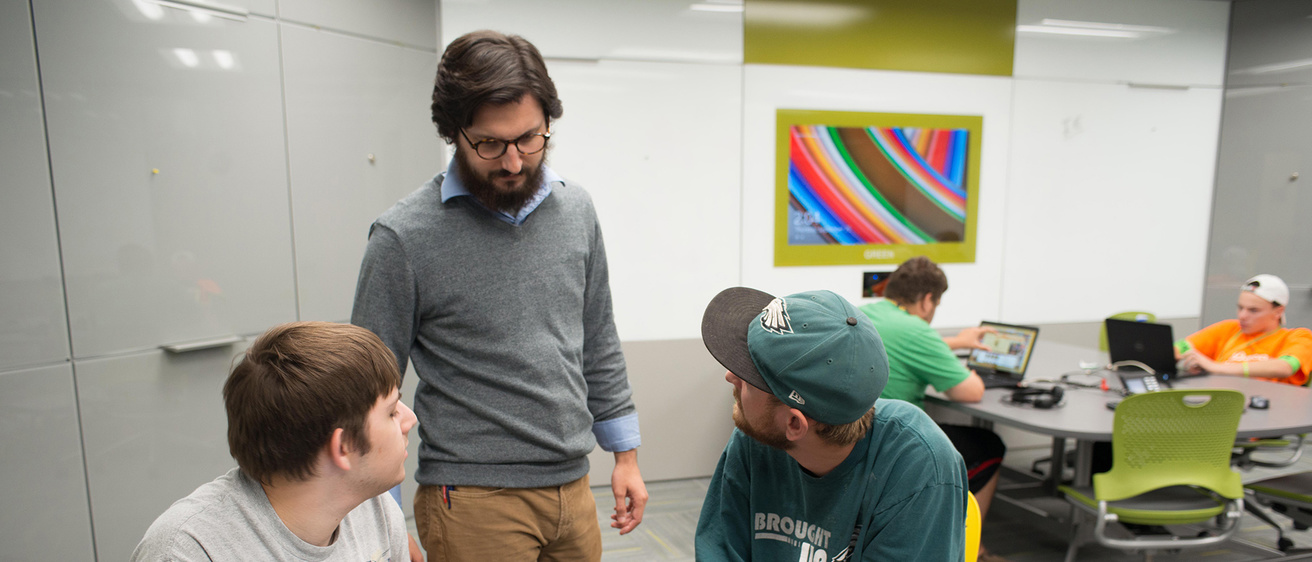Three University of Iowa College of Education faculty were recently awarded an innovative training grant from the U.S. Department of Education.
The five-year, $800,000 grant will fund the Interdisciplinary Counseling, Rehabilitation, and Special Education Service Training (I-CREST) project, a collaboration between faculty in the college’s Rehabilitation Counseling and Special Education programs that is intended to increase the number of high-quality special educators and rehabilitation counselors serving transition-age students with high intensity needs, including students who are multilingual and from racially and ethnically diverse backgrounds.
Project Director Allison Levine, an assistant professor in the Counselor Education program, along with co-PDs Seth King and Shawn Datchuk, both associate professors of Special Education, anticipate that the project will address national, state, and regional shortages in personnel qualified to provide culturally and linguistically responsive services to students with disabilities, particularly those students who have entered the transition period between secondary and postsecondary education, starting at age 14.
Through I-CREST, the team will recruit 24 scholars who will complete customized, evidence-based training across disciplines to improve post-school outcomes for this transition-age student demographic.
“In special education, this means that I-CREST scholars will be prepared to be leaders in collaborations with students and stakeholders due to the advanced training they will have in understanding the role of rehabilitation counselors and the rehabilitation counseling system in supporting students to achieve their goals during and beyond their time in school,” says Levine. “For rehabilitation counseling, I-CREST scholars will be able to integrate their specialized, interdisciplinary knowledge and skills into transition planning and counseling for students.”
With an emphasis on helping students in rural communities from culturally and linguistically diverse backgrounds, I-CREST scholars will engage in interdisciplinary coursework, training modules, and field experiences curated to improve their effectiveness as culturally competent practitioners.
“Our scholars will graduate with a heightened ability to apply evidence-based skills in an array of crucial areas for these students with high intensity needs, including collaboration and consultation , data-based decision-making, social-emotional-behavioral practices, intervention and instruction, as well as culturally and linguistically-relevant practices,” says Levine. “In turn, they will be able to utilize their expertise among schools and within the community.”
